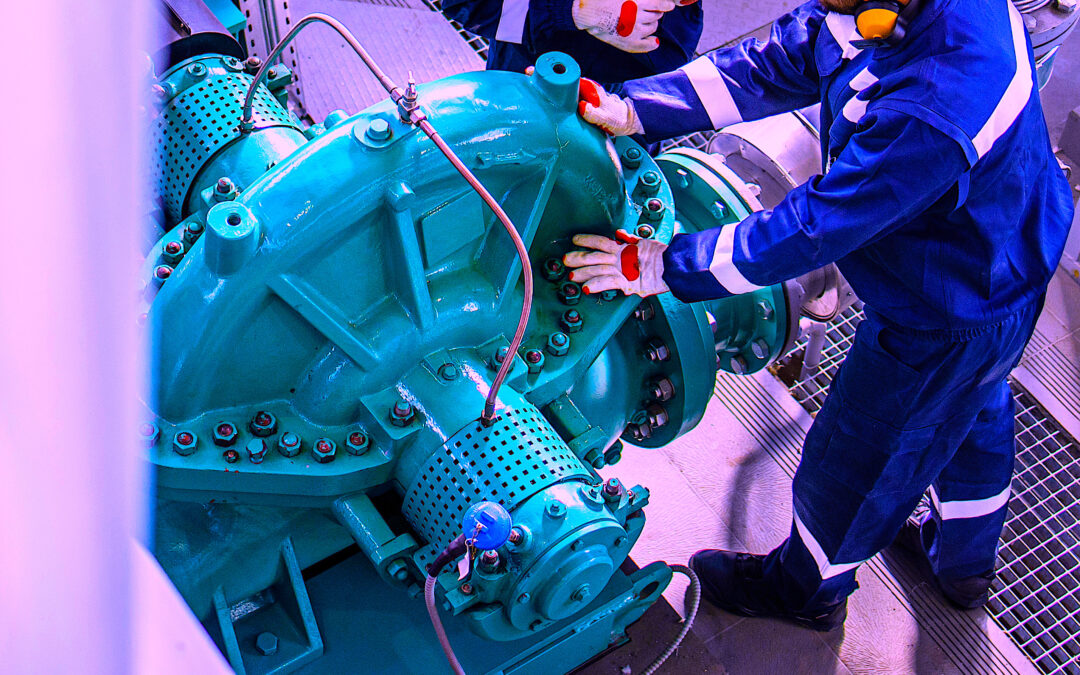Next time a process pump fails, a particular owner-operator is handed a fine opportunity go beyond the typical repair. In such a case, it would be appropriate to upgrade the pump and, thus, greatly reduce the probability of repeat failures. However, the first thing to do is select a competent pump repair shop or pump rebuilder. Why is that an issue worth mentioning?
Editor’s Note:
This article is based on a chapter in the author’s book
“Optimized Equipment Lubrication, 2nd Edition, 2021;”
De Gruyter, Berlin/Boston, (ISBN 978-3-11-074934-2).
Additional chapters will be highlighted on this website in the future.
As is so often the case, there are pump repair and rebuild shops whose entire focus is on keeping cost low. These shops are often unable to provide the engineered solutions needed for best efficiency, lowest life-cycle cost, and longest equipment life. Performing both an up-to-date competency and experience check together with understanding and applying the concept of life-cycle cost will steer the owner- operator to the right rebuilder. This rebuilder will be ready and willing to prove a solid combination of planning and work execution expertise.
The “rebuilder of choice” must perform and report to the owner-operator a large number of critical measurements. Also, the rebuilder must have a proven track record and assist the owner-operator of the process pump in compiling a list of deliverables. Pump owner and pump rebuilder must cooperate in performing a structured audit aimed at developing a written list that describes and confirms the adequacy of the rebuilder’s detailed procedures. The audit includes ascertaining the availability of a rebuilder’s experienced work force to carry out the projected upgrade work.
The shop’s needed degree of solid pump experience is best described by the following example, dealing with lubrication compromises that must be addressed. Pump manufacturers and rebuilders should be aware of special issues and potential problems that arise if, in any pump, both sleeve type and rolling element bearings share the same bearing housing. In essence, viscosity is of greatest importance and each bearing type fails if there is prolonged metal-to-metal contact.
To prevent contact, the oil film in sleeve bearings has to be thicker than the asperities (the surface roughness) in the bearing and journal surfaces. The oil film in a sleeve bearing must also be thicker than an occasional dirt particle traveling in the oil. Most important, the oil needs to be properly applied and must form a suitable film on the surfaces where it is most needed.
TEST YOUR PUMP REBUILDER’S LUBE KNOWLEDGE
To make a long story short, a lubricant with all required performance attributes, including film strength and film thickness must also allow oil rings to function properly. Only a well-proven synthetic ISO Grade 32 will satisfy most requirements. Preferred suppliers usually formulate such lubricants from a PAO/diester synthetic oil to which an ionic bonding agent has sometimes been added. The value of superior lubricants and and access to competent providers with application engineering knowledge far exceeds its incremental cost over least-expensive oils.
For best results and highly satisfactory long-term performance, the oil will have to be a premium synthetic ISO VG 32 or VG 46 formulation. It must give users the protection and film thickness/film strength properties of ISO VG 68 mineral oils. While these properties may not be needed elsewhere in one’s facility, they will make lots of technical sense in many process pumps that use both sleeve bearings and rolling element bearings in the same bearing housing. Find out if the pump rebuilder is aware of this issue.
When troubleshooting lubrication issues on existing pumps, one will often find sludge in pump bearing housings. It should be realized that water acts as a catalyst that promotes sludge formation. Sludge is thus often the result of water and atmospheric dirt, in addition to oil ring (slinger ring) debris. Exposure to airborne particulates is unavoidable in some environments and water intrusion is possible in other environments. Another potential source of water is from cracked water jackets. There is some irony in that observation, since cooling water may not be needed in the first place. Again, be sure the pump rebuilder understands this fact and supports your decision to delete cooling.
ON A RELATED NOTE: AVOID LOW-COST LUBRICANTS & LUBE-DELIVERY METHODS
Pump owner-operators should become familiar with the inadvisability of mixing two “virtually identical” oils from different suppliers. There is ample evidence that, so as to keep costs low, some oil suppliers skimp on the amount and/or quality of additives. The lowest-cost-supplier game is quite often encouraged by users. It stands to reason that engaging in these ill-advised procurement practices will result in suppliers and users not attracting, grooming, and/or retaining top talent.
If the user plays along with the supplier’s low-price strategy, the latter feels encouraged to provide a “commodity product,” and commodity lubrication products may not serve those of us who go beyond paying lip service to the term “reliability.” Are your lubricants selected on pricing criteria alone? Did someone in authority decide to “standardize” on one lubricant type for the entire facility? If you answered “yes” to these two questions, it’s a good bet that your plant is trending downhill toward below-average reliability and profitability.TRR
Editor’s Note: Click Here To Download A Full List Of Heinz Bloch’s 24 Books
ABOUT THE AUTHOR
Heinz Bloch’s long professional career included assignments as Exxon Chemical’s Regional Machinery Specialist for the United States. A recognized subject-matter-expert on plant equipment and failure avoidance, he is the author of numerous books and articles, and continues to present at technical conferences around the world. Bloch holds B.S. and M.S. degrees in Mechanical Engineering and is an ASME Life Fellow. These days, he’s based near Houston, TX.
Tags: reliability, availability, maintenance, RAM, process, pumps, bearings, lubrication, lubricants



